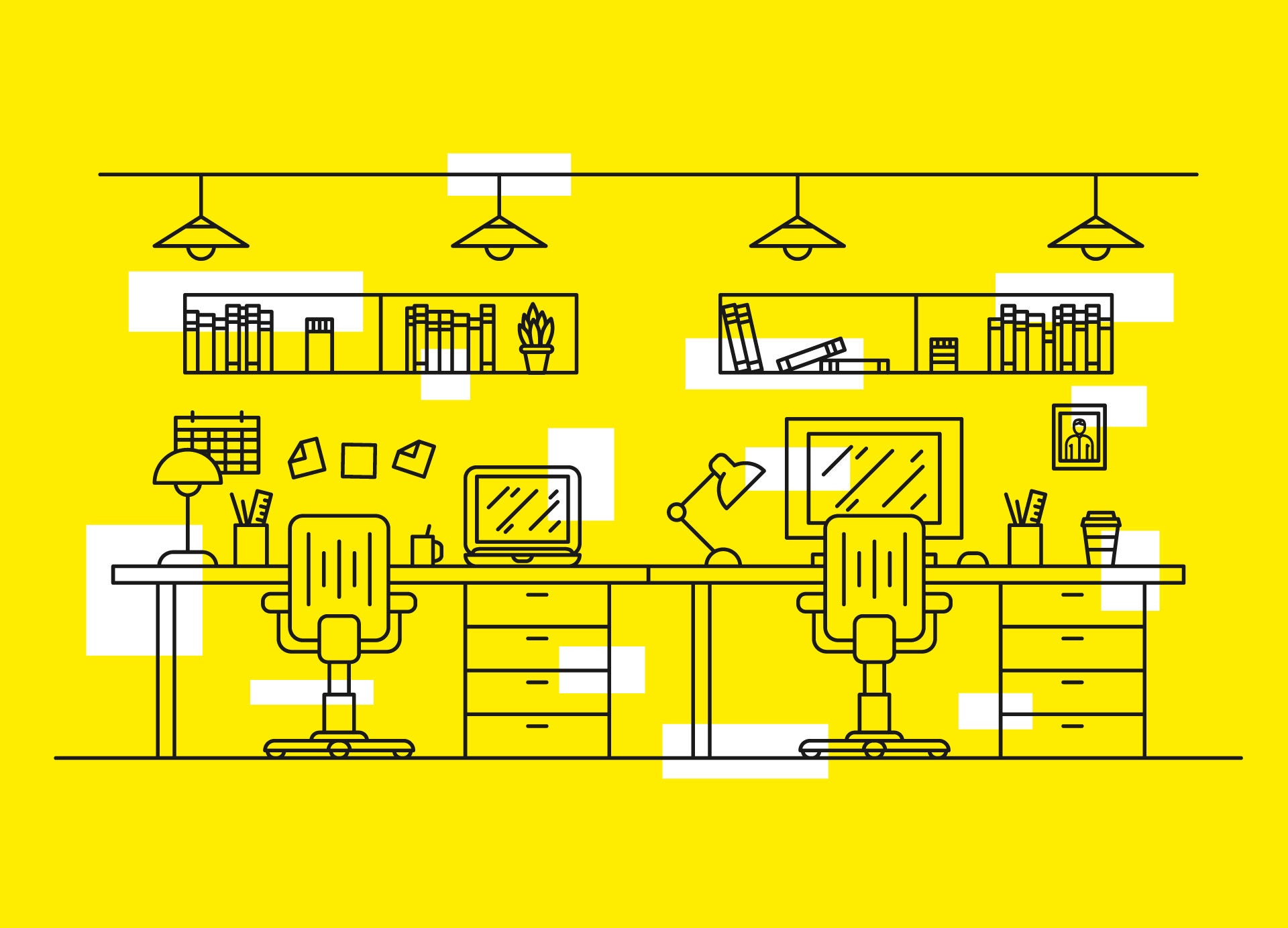
Prior to the Covid-19 coronavirus pandemic, many organisations were exploring a transition in working life, where the static office would be replaced with a hybrid approach, reflecting the footloose manner in which many employees can now work. And GoSpace AI is at the heart of this.
“As the first AI-powered space scheduling system, we can help companies balance their remote time with their office time,” explains Bruce Davison, CEO of GoSpace AI.
“Our technology learns the occupancy patterns of how teams are using their office space and how teams are communicating via enterprise social networks, making it possible to schedule each team with space in their office building in the most efficient manner to cut real estate costs and drive productivity.”
With the surge in working from home driven by the coronavirus, you might think GoSpace AI would be falling by the wayside. But the reality is quite different: the company is instead seeing an acceleration in the adoption of this hybrid approach.
“We’ve seen an acceleration in our vision of remote work and office work being balanced carefully. And it needs to be balanced based on each individual team’s requirements: some teams don’t need to be in the office as often others do,” says Davison.
“Since the outbreak of coronavirus, there’s been an accelerated acceptance of remote working. People are becoming more aware of not only the value of office space when they need to be together, but also realising that they can accomplish a lot of things remotely.
How well do you really know your competitors?
Access the most comprehensive Company Profiles on the market, powered by GlobalData. Save hours of research. Gain competitive edge.

Thank you!
Your download email will arrive shortly
Not ready to buy yet? Download a free sample
We are confident about the unique quality of our Company Profiles. However, we want you to make the most beneficial decision for your business, so we offer a free sample that you can download by submitting the below form
By GlobalData“Historically, leaders have primarily been focused on getting everyone to work in the office. Meanwhile, remote or telecommuting work was seen as an extra. Things have become much more balanced over the past few weeks.”
GoSpace AI and the coronavirus: Supporting social distancing in the workplace
While at present many companies have switched completely to home working, many still need at least some staff to come into the physical office to undertake vital work that cannot be completed remotely. And here, GoSpace AI is helping to ensure that the risk of transmitting the coronavirus is firmly minimised.
“We work with companies to create a dynamic model of their real estate portfolio. It can be one, or it can be 20 buildings. We take information on their team structures and instantly run scenarios for them,” explains Davison.
“We look at different options of scheduling different people on different days to ensure that the right teams are together in the office and on the right days. But at the same time, we’re helping companies to reduce the amount of people in the office at any given time to ensure that social distancing requirements are met.”
Using the platform, companies are able to plan office occupancy for each day to best protect employees.
“For example, we’re ensuring individuals are not having to go to different areas of the office every day, which would increase the likelihood of transmission of Covid. One of the powers of our solution is it looks at the patterns of how people use office space, before allocating space,” he explains.
“Our solution is not a typical booking or reservation system, which is first come first serve and everyone just gets whatever space is available. it’s much smarter than that and actually takes into account where you’ve been in the past. Therefore, it’s possible to reduce the amount of contact you’ll have with multiple or different individuals.”
Rethinking the office
GoSpace AI has long encouraged companies to change how they think of the office, which prior to the coronavirus could prove challenging.
“Traditionally, people have looked at the office as quite a static thing. The mentality was that businesses complete some surveys and collect some data to redesign or re-organise their office so it’s good for the next five years,” he says.
“Since launching a year ago, we’ve been trying to get people on board with the idea that the office is perpetual change. For example, attrition rates on average are 15 to 20%; on any given day, 10% of people are sick; and 4% to 5% of the workforce are now contract workers.
“When you start adding up all of these dynamic variables, you can see that the office is really a dynamic, constantly changing environment in terms of its needs.”
However, Davison believes that the coronavirus has served as a catalyst to this shift in mindset.
“In the last year, we’ve been showing people that you don’t want to just collect some data and understand how it was working at one moment in time. Instead, you need to constantly be understanding how your people are using your space,” he says.
“Coronavirus has accelerated this. Organisations are realising that office space isn’t just static and planned for one thing; it can be dynamically allocated and used more efficiently.”
The future of the workplace
Looking ahead, Davison does not believe that there will be a total return to the static offices of the pre-coronavirus era.
“I definitely believe that these changes are going to become more permanent. The way companies use office space has considerably changed over the last 20 years,” he says.“In the past, people were given a desk and that was very fixed. You knew where you were in the department. You had your pictures and a large desktop computer. And you’d be there for 20 years.
“But we’ve moved away from this. More and more people are getting comfortable with the idea of having a laptop and a light touch. The office has become much more flexible. “
The coronavirus has in some sense been a wake-up call to this change.
“People are realising that if they’re going to do individual work, maybe they don’t need to be in the office,” he says.
“However, if they need to work collaboratively with other people in an ad-hoc way, they can go into the office instead of jumping on a video conference call.
“In a post-Covid world, offices will be seen as a place where groups come together when required. In order to support this, an intelligent scheduling tool is incredibly useful.”
Read more: Coronavirus case studies: Unit London goes beyond virtual art galleries







